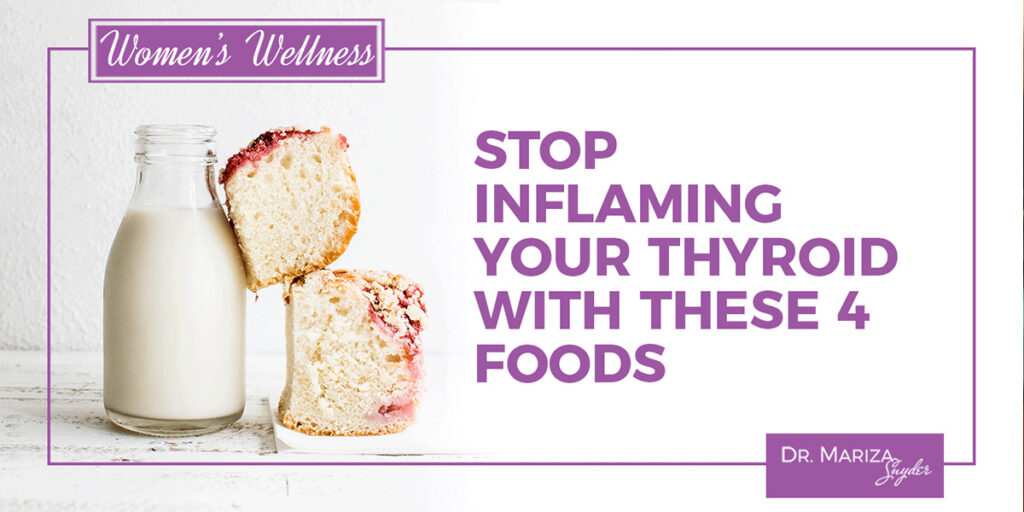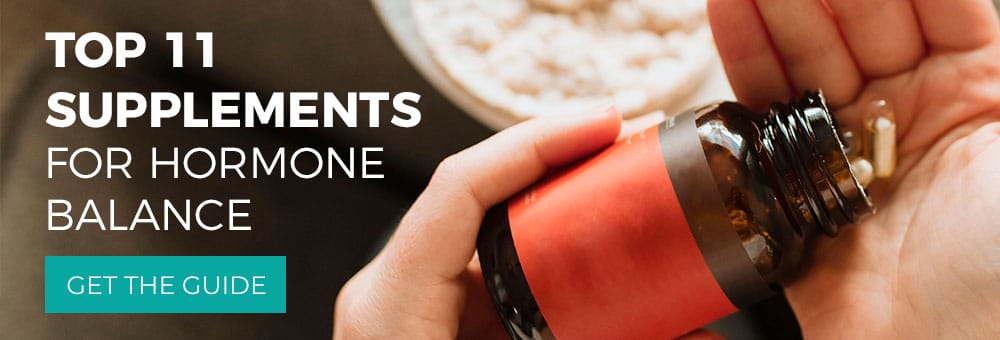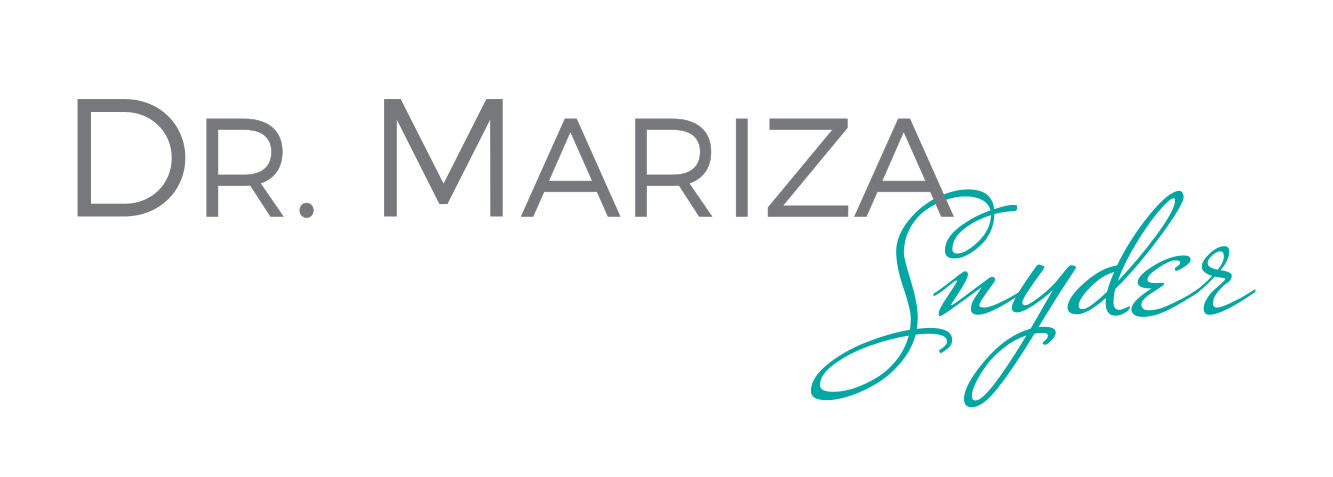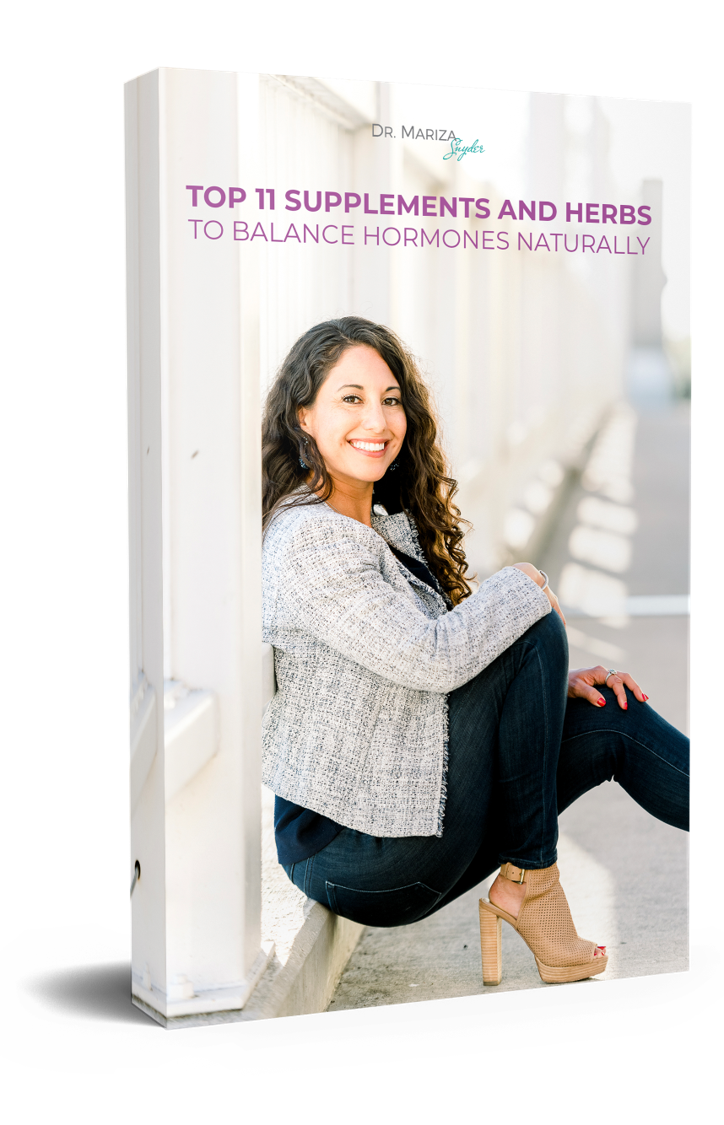
“What should I eat now that I have this diagnosis?” This is a question I hear all the time, from people who are either dealing with hormone imbalances, thyroid disorders, or autoimmune diseases like Hashimoto’s. While there is no concrete answer to this question (and believe me, I wish there were!), I want to empower you to make the best choices you can make for your body and your health.
Let me first say that food is a personal thing. What works for one person may not work for someone else. The best advice I can give is that you listen to your body. This involves finding what makes you feel good and getting rid of the things that don’t!
But to help you get started, I want to highlight a few foods that are known to especially affect people with thyroid dysfunction and give you alternatives to help you take ownership of what is going into your body.
#1 – Gluten
This is the number one culprit when it comes to thyroid disorders. Gluten is found in the grains wheat, rye, spelt, barley, and triticale (a wheat-rye hybrid), as well as wheat variations like wheatberries, durum, emmer, semolina, farina, farro, graham, and other derivatives.
These grains contain a protein called gliadin that your body can easily mistake for a thyroid molecule. If your gut is irritated and inflamed because of sensitivity to gluten or stress, the gliadin protein is able to enter right into your bloodstream. Then, your immune system mistakenly identifies gliadin as an intruder and attacks it by producing antibodies to gliadin. Once these antibodies are formed, they can attack your thyroid gland, essentially compounding the effects of Hashimoto’s and hypothyroidism (an underactive thyroid, meaning you don’t have enough thyroid hormone). (1)
Even if it doesn’t get to that point, the inflammation caused by gluten (if you have a sensitivity) can really disrupt the homeostasis between your gut, brain, and thyroid, which causes imbalance and affects your metabolism, energy, brain health, and more. (2)
Alternatives: It takes a good 6-8 weeks to completely begin the healing process from gluten issues. Unfortunately, one bite of gluten can set you back to square one. When you go gluten-free, do it hardcore. A whole-foods diet rich with grass-fed animal protein and lots of veggies is your best option. This way, you don’t even have to worry about reading labels
If you do venture into the processed realm, be sure to stick with items that have a few identifiable ingredients. And don’t run the risk of cross-contamination. You’ll also need to be ready to ask questions when you go out to eat. Gluten can lurk in salad dressings, marinades, and spice blends.
If you are able to tolerate grains, try using brown rice, quinoa, gluten-free oats, or other nutrient-dense foods. Watch out for foods that are labeled “gluten-free” because many of them compensate for the lack of gluten with lots of added sugars and starches that will continue to cause inflammation in your body. You also want to watch out for foods processed in a factory that also handles wheat.
Finding alternatives rather than direct replacements is your best bet here. For example, try your favorite pasta dishes on spaghetti squash or other spiralized vegetables instead of gluten-free pasta.
#2 – Dairy
Many people who are sensitive to gluten are also sensitive to dairy. A study found that 75% of patients with Hashimoto’s were also lactose intolerant. It showed that removing dairy helped balance out their thyroid hormone levels. (3) Dairy can cause more inflammation and makes your body’s pH more acidic, which throws off your thyroid by keeping you from absorbing all the nutrients it needs to thrive. (4, 5)
Alternatives: You can use nut milks like coconut, almond, and cashew in place of dairy in most daily uses. Many stores also carry cheeses and yogurts made from these milks. Just read labels to make sure there are no unwanted extra ingredients!
Worried about not getting enough calcium without milk? Leafy greens, seeds, and vegetables are full of calcium and other nutrients your body needs to thrive. And the non-dairy alternatives listed above often have a healthy dose of calcium as well. Supplements are also a great option for upping your calcium quotient, and these may be a more bioavailable option than cow’s milk anyway!
#3 – Processed Sugar and Sugar Substitutes
It is critical that you keep an even blood sugar level to protect your thyroid. Spikes and dips in your blood sugar can make your body feel stressed. This causes cortisol to be released from your adrenal glands. This cortisol slows down your thyroid’s function and can trigger issues with hypothyroidism and Hashimoto’s. (6)
Sugar, starchy foods, and carbohydrates all can cause your body to enter this cycle of stress, so it is best to limit them.
Artificial sweeteners like aspartame (Equal) and sucralose (Splenda) raise your risk of getting Hashimoto’s because of their effect on TSH levels. A recent study looked at people who consumed artificial sweeteners and had a recent Hashimoto’s diagnosis. The study found that removing these sweeteners caused the subjects to reverse their symptoms and lower their antibody levels. (7) There is no health benefit to artificial sweeteners, so there is no reason to put them in your body.
Alternatives: Cutting sugar out of your diet can be like quitting an addiction. I know it is hard, but it is so worth it. Here are some resources I put together to help you break up with sugar! An alternative I use is stevia because it is natural, plant-based, and will not affect your system like other sweeteners. Just watch that you don’t overdo the natural sugars like fructose found in fruits!
#4 – Caffeine
I know, I know. I love coffee, too! And you don’t want me to mess with your coffee. But hear me out first before you make the decision for yourself…
While coffee has been found to have multiple health benefits (8), it is also a known stress-enhancer. (9)
So what does this mean? Basically, caffeine is not the problem — your stress is. If you are already feeling stressed (which is a root cause for so many of our thyroid problems), that daily coffee is probably making it worse. When you are stressed and are releasing cortisol into your system, your thyroid function is lowered by your pituitary gland because it is in survival mode. Coffee will just amplify the effects of the cortisol in your system.
You can read a more detailed discussion of coffee and caffeine in my podcast: Is Coffee Bad for Your Adrenal Health?
Alternatives: Because most of us use caffeine as a way to mask our tiredness, the best way to replace caffeine is by finding the why behind your fatigue. Are you getting enough sleep? Are you fueling your cells with foods they can use for energy?
I love starting my day with green smoothies for a natural energy boost. I love to think of all the nutrients I am giving my cells to keep me going through the day. Matcha tea also offers caffeine with larger health benefits if you are looking to transition to less caffeine. Check out this blog with information on combining these two gems – Matcha & Green Smoothies!
A note on coffee as self-care…
I understand wanting that sensation of a warm cup of coffee to start your day. In fact, I am at a time in my life where you will find me with a cappuccino in my hands most mornings as I get going.
Coffee can be a healthy part of your morning rituals if you feel like your system can handle it. I am at a point now where my stress is under control. This means the caffeine does not send me into imbalance…but it was not always this way. I had to give up coffee for an extended period of time while my body healed and rebalanced.
Once my stress and energy levels evened out, I was able to successfully reintroduce it. Listen to your body — if you feel wired and tired, it may be time to take a break while you heal. When you feel like your stress is under control, you can always try adding it back in moderation!
If you are looking for some more great information on how to leverage your diet — to help your healing journey, be sure to check out the following podcasts:
Only you can begin your journey back to health and paying attention to all of the elements in your life. This will make you more empowered and aware of how you are serving yourself. Give your best self to the world by emphasizing your internal healing!
Free Download: Dr. Mariza’s Top 11 Supplements for Hormone Health
Ready to take charge of your own health? Grab this free guide to get you started!



No comments yet.